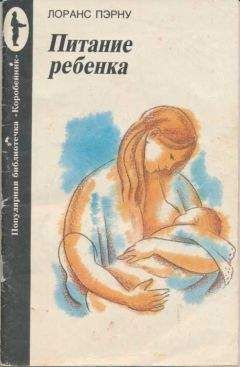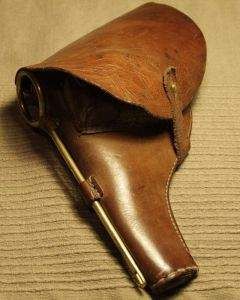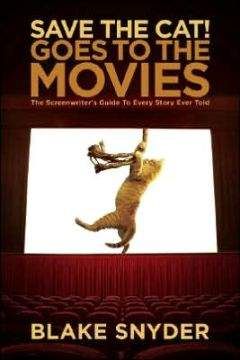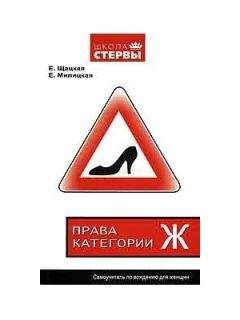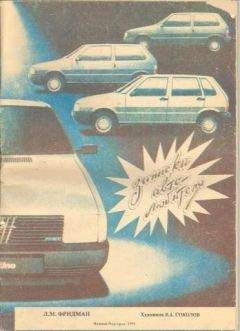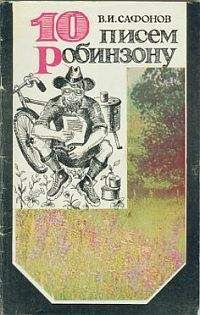Неизвестен Автор - Словарь американских идиом (8000 единиц)
Скачивание начинается... Если скачивание не началось автоматически, пожалуйста нажмите на эту ссылку.
Жалоба
Напишите нам, и мы в срочном порядке примем меры.
Описание книги "Словарь американских идиом (8000 единиц)"
Описание и краткое содержание "Словарь американских идиом (8000 единиц)" читать бесплатно онлайн.
[put one's shoulder to the wheel] <v. phr.> To make a great effort yourself or with others; try hard; cooperate. * /The effort to get a new high school succeeded because everyone put his shoulder to the wheel./ * /The company was failing in business until a new manager put his shoulder to the wheel./
[put on one's thinking cap] <v. phr.> To think hard and long about some problem or question. * /Miss Stone told her pupils to put on their thinking caps before answering the question./
[put on paper] See: BLACK AND WHITE.
[put on the back burner] See: ON ICE.
[put on the dog] <v. phr.> To behave ostentatiously in terms of dress and manner. * /"Stop putting on the dog with me," Sue cried at Roy. "I knew the real you from way hack!"/
[put on the line] See: LAY ON THE LINE.
[put on the map] <v. phr.> To make (a place) well known. * /The first successful climb of Mount Matterhorn put Zermatt, Switzerland, on the map./ * /Shakespeare put his hometown of Stratford-on-Avon on the map./
[put out] <v.> 1. To make a flame or light stop burning; extinguish; turn off. * /Please put the light out when you leave the room./ * /The firemen put out the blaze./ 2. To prepare for the public; produce; make. * /For years he had put out a weekly newspaper./ * /It is a small restaurant, which puts out an excellent dinner./ 3. To invest or loan money. * /He put out all his spare money at 4 percent or better./ 4. To make angry; irritate; annoy. * /It puts the teacher out to be lied to./ * /Father was put out when Jane spilled grape juice on his new suit./ 5. <informal> To cause inconvenience to; bother. * /He put himself out to make things pleasant for us./ * /Will it put you out if I borrow your pen?/ Compare: GO OUT OF ONE'S WAY. 6. To retire from play in baseball. * /The runner was put out at first base./ 7. To go from shore; leave. * /A Coast Guard boat put out through the waves./ 8. <vulgar>, <avoidable> Said of women easy and ready to engage in sexual intercourse. * /It is rumored that Hermione gets her promotions as fast as she does because she puts out./
[put out of action] See: OUT OF ACTION.
[put out of the way] <v. phr.> To kill. * /When people spoke against the dictator, he had them put out of the way./ * /The old dog was very sick, and Father had the animal doctor put him out of the way./
[put over] <v.> 1. To wait to a later time; postpone. * /They put over the meeting to the following Tuesday./ Syn.: PUT OFF. 2. <informal> To make a success of; complete. * /He put over a complex and difficult business deal./ Syn.: BRING OFF, PUT ACROSS, SLIP OVER. 3. <informal> To practice deception; trick; fool. - Used with "on". * /George thought he was putting something over on the teacher when he said he was absent the day before because his mother was sick and needed him./ * /Tom really slipped one over on us when he came to the Halloween party dressed as a witch./
[put someone on] <v.> To play a joke on someone by saying or doing things that are only pretense; kid. * /When the voice on the phone told Mrs. Jones she had won a $10,000 prize, she thought someone was putting her on./
[put that in your pipe and smoke it] <v. phr.>, <informal> To understand something told you; accept something as fact or reality; not try to change it. - Usually used as a command, normally only in speech, and often considered rude. * /People don't vote against Santa Claus, and you might as well put that in your pipe and smoke it./ * /I am not going to do that and you can put that in your pipe and smoke it./
[put the bite on] <v. phr.>, <slang> To ask (for money, favors, etc.) * /John put the bite on his friend for several tickets to the dance./ * /Willie Mays put the bite on the Giants for a large raise./
[put the cart before the horse] See: CART BEFORE THE HORSE.
[put their heads together] or [lay their heads together] <v. phr.>, <informal> To plan or consider things together; discuss something as a group; talk it over. * /They put their heads together and decided on a gift./ * /We laid our heads together and decided to have a picnic./
[put through] <v. phr.> 1. To carry out; arrange. * /If Jim can put through one more financial transaction like this one, we will be rich./ 2. To connect (said of telephone calls). * /The telephone operator had to put me through to Zambia as there is no direct dialing there yet./
[put through one's paces] <v. phr.>, <informal> To test the different abilities and skills of a person or a thing; call for a show of what one can do. * /He put his new car through its paces./ * /Many different problems put the new mayor through his paces in the first months of his term./
[put to bed] <v. phr.> 1. To put to rest for the night. * /Father put the three children to bed./ * /The boy seemed ill, so the nurse put him to bed./ 2. <informal> To complete preparations and print. * /The newspaper was put to bed at 1:15 A.M./ * /The pressroom was late in putting the sports section to bed./
[put to it] <adj. phr.> Hard pressed; having trouble; in difficulty; puzzled. * /When he lost his job, he was rather put to it for a while to provide for his family./ * /The boy was put to it to answer the teacher's question./
[put to rights] or [set to rights] <v. phr.>, <informal> To put in good order; clean up. * /It took the company a long time to put the office to rights after the fire./ * /It took Mrs. Smith an hour to set the room to rights after the party./
[put to sea] <v. phr.> To start a voyage. * /The captain said the ship would put to sea at six in the morning./ * /In the days of sailing ships, putting to sea depended on the tides./
[put to shame] <v. phr.> 1. To disgrace. * /The cleanliness of European cities puts our cities to shame./ * /That filthy dump puts our town to shame./ 2. To do much better than surpass. * /Einstein put other physicists to shame when he proved his theory of relativity correct./
[put to sleep] <v. phr.> 1. To cause to fall asleep. * /Mother used to put us to sleep by telling us a good-night story and giving us a kiss./ 2. To kill with an injection (said of animals). * /Dr. Murphy, the veterinarian, put our sick, old dog to sleep./
[put to the sword] <v. phr.>, <literary> To kill (people) in war, especially with a sword. * /The Romans put their enemies to the sword./ * /In some wars captives have been put to the sword./
[put to use] <v. phr.> To use. * /During the early part of the Korean war the cooks and office workers of the U.S. Army were put to use in battle./ * /Henry decided to put his dictionary to use./ * /I wish you'd put the lawn mower to use!/
[put two and two together] <v. phr.> To make decisions based on available proofs; reason from the known facts; conclude; decide. * /He had put two and two together and decided where they had probably gone./ * /It was just a mater of putting two and two together: the facts seemed to permit only one decision./
[put up] <v.> 1a. To make and pack (especially a lunch or medicine); get ready; prepare. * /Every morning Mother puts up lunches for the three children./ * /The druggist put up the medicine that the doctor had prescribed./ Compare: MAKE UP(1). 1b. To put food into jars or cans to save; can. * /Mother is putting up peaches in jars./ 1c. To store away for later use. * /The farmer put up three tons of hay for the winter./ 2. To put in place; put (something) where it belongs. * /After he unpacked the car, John put it up./ * /After the hard ride, the doctor gave the horse to the stable boy to put up./ * /After the battle, the knight put up his sword./ Syn.: PUT AWAY. 3. To suggest that (someone) be chosen a member, officer, or official. * /The club decided to take in another member, and Bill put up Charles./ - Often used with "for". * /The Republicans put Mr. Williams up for mayor./ 4. To put (hair) a special way; arrange. * /Aunt May puts up her hair in curlers every night./ Compare: DO UP(3a). 5. To place on sale; offer for sale. * /She put the house up for sale./ 6a. To provide lodging for; furnish a room to. * /The visitor was put up in the home of Mr. Wilson./ * /They put Frank up at a good hotel./ 6b. To rent or get shelter; take lodging; stay in a place to sleep. * /The traveler put up at a motel./ * /We put up with friends on our trip to Canada./ 7. To make; engage in. * /He put up a good fight against his sickness./ Compare: CARRY ON. 8. To furnish (money) or something needed; pay for. * /He put up the money to build a hotel./
[put-up] <adj.> Artificially arranged; plotted; phony; illegal. * /The FBI was sure that the bank robbers worked together with an insider and that the whole affair was a put-up job./
[put up a (brave, good, etc.) flght] <v. phr.> To resist. * /He put up a good fight but he was bound to lose in the end to the older, more experienced chess player./
[put up a (brave] or [good) front] <v. phr.> To act courageously, even though one is actually afraid. * /When Joe was taken in for his open heart surgery, he put up a brave front, although his hands were shaking./
[put up or shut up] <v. phr.> <informal> 1. To bet your money on what you say or stop saying it. - Often used as a command; often considered rude. * /The man from out of town kept saying their team would beat ours and finally John told him "Put up or shut up."/ 2. To prove something or stop saying it. - Often used as a command; often considered rude. * /George told Al that he could run faster than the school champion and Al told George to put up or shut up./
[put upon] <v.> To use (someone) unfairly; expect too much from. Used in the passive or in the past participle. * /Martha was put upon by the bigger girls./ * /Arthur was a much put-upon person./
[put up to] <v. phr.>, <informal> To talk to and make do; persuade to; get to do. * /Older boys put us up to painting the statue red./ Compare: EGG ON.
[put up with] <v.> To accept patiently; bear. * /We had to put up with Jim's poor table manners because he refused to change./ * /The mother told her children, "I refuse to put up with your tracking in mud!"/ Compare: STAND FOR.
[put wise] <v.>, <slang> To tell (someone) facts that will give him an advantage over others or make him alert to opportunity or danger. * /The new boy did not know that Jim was playing a trick on him, so I put him wise./ - Often used with "to". * /Someone put the police wise to the plan of the bank robbers, and when the robbers went into the bank, the police were waiting to catch them./ Compare: TIP OFF.
[put words into one's mouth] <v. phr.> To say without proof that another person has certain feelings or opinions; claim a stand or an idea is another's without asking; speak for another without right. * /When he said "John here is in favor of the idea." I told him not to put words in my mouth./
Q
[q] See: MIND ONE'S P'S AND Q'S.
[Q.T.] See: ON THE Q.T.
[qualms] See: HAVE (NO) QUALMS ABOUT.
[quantity] See: UNKNOWN QUANTITY.
[quarterback sneak] <n.> A football play in which the quarterback takes the ball from the center and dives straight ahead in an attempt to gain a very short distance. * /Johnson took the ball over on a quarterback sneak for a touchdown./
[queen] See: HOMECOMING QUEEN.
[queer fish] <n.> A strange or unusual person who does odd things. * /Uncle Algernon dresses in heavy furs in the summer and short-sleeved shirts in the winter. No wonder everyone considers him a queer fish./
[queer oneself] <v. phr.> To act in such a manner as to offend others and thus one's own chances or position. * /Phil has queered himself with many girls by his erratic behavior./
[quest] See: IN SEARCH OF also IN QUEST OF.
[question] See: BEG THE QUESTION, BESIDE THE POINT or BESIDE THE QUESTION, BEYOND QUESTION also WITHOUT QUESTION, CALL IN QUESTION, IN QUESTION, INTO QUESTION, OUT OF THE QUESTION, POP THE QUESTION.
[quick buck] See: FAST BUCK.
[quick on the draw] See: QUICK ON THE TRIGGER.
[quick on the trigger] or [trigger happy] <adj. phr.> Ready to shoot without warning; fast with a gun. * /He's a dangerous criminal quick on the trigger./ 2. <informal> Fast at answering questions or solving problems. * /In class discussions John is always quick on the trigger./
[quick on the uptake] <adj. phr.> Smart; intelligent. * /Eleanor is very witty and quick on the uptake./
[quick study] <n. phr.> One who acquires new skills and habits in record time. * /Sue is new at her job but people have confidence in her because she is a quick study./
[quit] See: CALL IT QUITS.
[quite a bit] See: QUITE A LITTLE.
[quite a few] or [quite a number] also <formal> [not a few] <n.> or <adj. phr.> Rather a large number; more than a few. * /Quite a few went to the game./ * /The basket had quite a few rotten apples in it./ - The phrase "quite a number" is used like an adjective only before "less", "more". * /Few people saw the play on the first night but quite a number more came on the second night./ - Sometimes used like an adverb. * /We still have quite a few more miles to go before we reach New York./ Syn.: GOOD MANY, NOT A FEW. Compare: A FEW, A NUMBER.
[quite a little] or <informal> [quite a bit] also <formal> [not a little] <n.> or <adj. phr.> Rather a large amount; rather much; more than a little. * /We are not finished; quite a little is left to do./ * /Cleaning the backyard needed quite a little work./ - The phrase "quite a bit" is used like an adjective only before "less", "more". * /Six inches of snow fell today, and quite a bit more is coming tonight./ - Sometimes used like an adverb. * /Harry was sick quite a little last winter./ Compare: A LITTLE, A LOT, QUITE A PEW.
[quite a number] See: QUITE A FEW.
[quite the thing] <n. phr.> The socially proper thing to do. * /In polite society it is quite the thing to send a written thank you note to one's host or hostess after a dinner party./
R
[rabbit] See: JACK-RABBIT START.
[race] See: DRAG RACE, RAT RACE.
[race against time] <v. phr.> To be in a great hurry to finish a given project by a specified deadline. * /The workers were racing against time to finish the campus modernization project./
[race to stand still] <v. phr.> To be so far behind in one's work that one must exert an effort similar to that needed to win a race in order simply not to fall even further behind. * /"Could you review this book for us, Professor Brown?" the editor asked. "Unfortunately, no," the professor answered. "I'm so behind in my work that I am racing to stand still."/
[rack and ruin] <n. phr.> Complete decay; condition of decline. * /The entire house had been so neglected that it had gone to rack and ruin./
[rack one's brain] <v. phr.> To try your best to think; make a great mental effort; especially: to try to remember something you have known. * /Bob racked his brain trying to remember where he left the book./ * /Susan racked her brain trying to guess whom the valentine came from./ * /John racked his brain during the test trying to solve the problem./
Подписывайтесь на наши страницы в социальных сетях.
Будьте в курсе последних книжных новинок, комментируйте, обсуждайте. Мы ждём Вас!
Похожие книги на "Словарь американских идиом (8000 единиц)"
Книги похожие на "Словарь американских идиом (8000 единиц)" читать онлайн или скачать бесплатно полные версии.
Мы рекомендуем Вам зарегистрироваться либо войти на сайт под своим именем.
Отзывы о "Неизвестен Автор - Словарь американских идиом (8000 единиц)"
Отзывы читателей о книге "Словарь американских идиом (8000 единиц)", комментарии и мнения людей о произведении.








